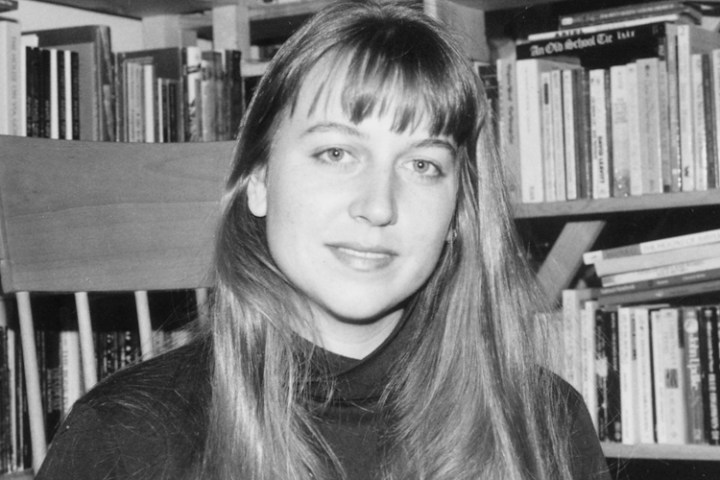“You are not a terrible person for wanting to break up with someone you love. You don’t need a reason to leave. Wanting to leave is enough,” Cheryl Strayed reassures her younger self in the concluding letter of Tiny Beautiful Things, a collection of her much-beloved Dear Sugar advice column. In a “rash and romantic impulse,” Strayed married her husband when she was one month short of twenty. Though she loved him deeply, devotedly— he was gentle and tender and caring, he was an artist and political and outdoorsy— she didn’t love him “absolutely.” She resented that he had all the privilege of an upper-middle class upbringing while she grew up in a house without running water and was orphaned when her mom died suddenly from cancer in her early twenties. She still lusted for scandalous sex with strangers in bathrooms scrawled with graffiti; she was too young to commit to lifelong monogamy.
There was nothing wrong with her husband— he didn’t go out drinking and disappear for days, he didn’t lie or cheat; there was nothing wrong with their relationship per se— they didn’t scream or slam doors or shout obscenities, they didn’t hurl grenades of nasty names or launch bitter campaigns against each other as if they were enemies— yet she still wanted to leave. “There was in me an awful thing from almost the very beginning, a tiny clear voice that would not, no matter what I did, stop saying go,” she writes with heart-breaking poignancy.

In what are perhaps the most gut-wrenching letters in all of Tiny Beautiful Things, five women write the always sympathetic Strayed with a similar dilemma: they love their significant others but want to leave. Each woman cites a different reason: while Standing Still is miserably depressed and feels misunderstood by her devoutly religious husband, Claustrophobic— like too many women in their late twenties/early thirties— feels pressured to marry her long-term boyfriend though the thought of tying the knot makes her “claustrophobic and panicky.” Playing It Safe adores her husband whom she calls “terribly romantic” but worries she was too young to get married. Secretly, she longs for a life of adventure and daring: she wants to date other people, gallivant around the globe, join the Peace Corps. Similarly, Leaving a Marriage describes herself as “living in limbo”: on one hand, she loves her husband and feels it’s her duty to honor the binds of marriage; on the other, she feels “distant and remote” in their passionless union and is “repulsed at the idea of having sex with him.”
Though their circumstances differ, each woman is essentially saying the same thing: “I love him but…” I love him but he doesn’t think depression is a real thing. I love him but he doesn’t inspire/challenge me. I love him but we don’t have any chemistry.
And isn’t that what makes the decision to end a relationship so excruciating? You’re confronted with multiple truths. There is the truth that you love your boyfriend/husband but there’s also the competing, contradictory truth that— for whatever reason— you no longer want to be with him. How can you know which truth is the most true?
If you approach your decision with hard, rational logic, you might make a pro and con list. On the pro side, the reasons to stay are endless: we stay because marriage is a commitment (as Leaving a Marriage writes, “marriage isn’t all puppies and rainbows, it requires hard work and endurance.”); we stay because our husbands have been faithful to us; we stay because we’re afraid to start over; we stay because we have a house and children. We stay because it is familiar, because it would be inconvenient to sell our family home and find our own apartment. We stay because custody battles are ugly and a good lawyer is expensive. Mostly, we stay because we know leaving will devastate our husbands.
On the con side, we might have some compelling reasons to go: maybe our husband is petty and always puts us down; maybe he has outmoded ideas about gender roles and believes it’s our duty as a woman to give up our career and stay home; maybe we’re just incompatible on a fundamental level.
So what should we do? In a passage of distressing beauty, Strayed stirs her letter writers to go and follow their truest truth:
“Go, even though you love him.
Go, even though he’s kind and faithful and dear to you.
Go, even though he’s your best friend and you’re his.
Go, even though you can’t imagine your life without him.
Go, even though he adores you and your leaving will devastate him.
Go, even though your friends will be disappointed or surprised or pissed off or all three.
Go, even though you once said you would stay.
Go, even though you’re afraid of being alone.
Go, even though you’re sure no one will ever love you as well as he does.
Go, even though there is nowhere to go.
Go, even though you don’t know exactly why you can’t stay.
Go, because you want to.
Because wanting to leave is enough.”
But if we do finally make the courageous choice to “go,” how do we cope with the crushing guilt that comes with hurting someone we love? Rather than mire ourselves in a pit of self-punishment and self-hatred, we should treat ourselves with compassion and gentleness. We made a tough decision. Will leaving break our husband’s heart? Yes, but it’s actually the kindest thing we could do. It may seem cruel to utter the words “it’s over” and simply walk out the door, but it would be even more cruel to stay when we wanted to go. After all, what’s worse: weeping inconsolably on the floor for a few days/weeks/months after your wife leaves you or tossing and turning in bed for years tormented by the terrible, inescapable sense that the person you love no longer loves you?
